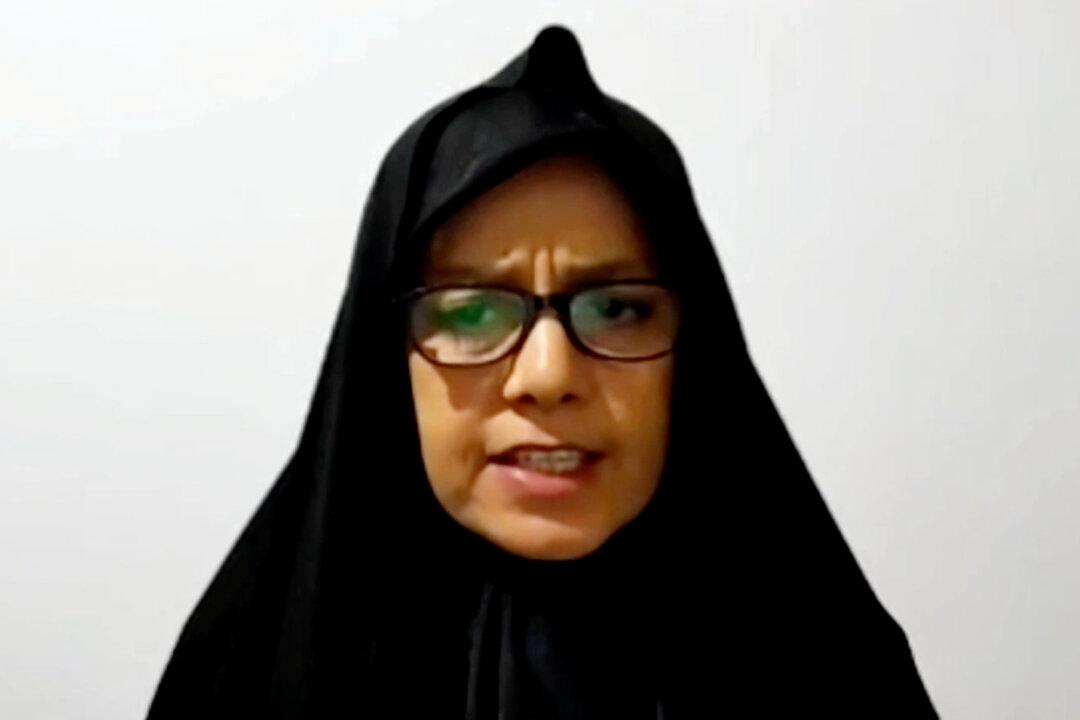DUBAI—Iranian Supreme Leader Ayatollah Ali Khamenei’s niece, a well-known rights activist, has called on foreign governments to cut all ties with Tehran over its violent crackdown on popular unrest kindled by the death of a young woman in police custody.
A video statement by Farideh Moradkhani, an engineer whose late father was a prominent opposition figure married to Khamenei’s sister, was being widely shared online after what activist news agency HRANA said was her arrest on Nov. 23.





